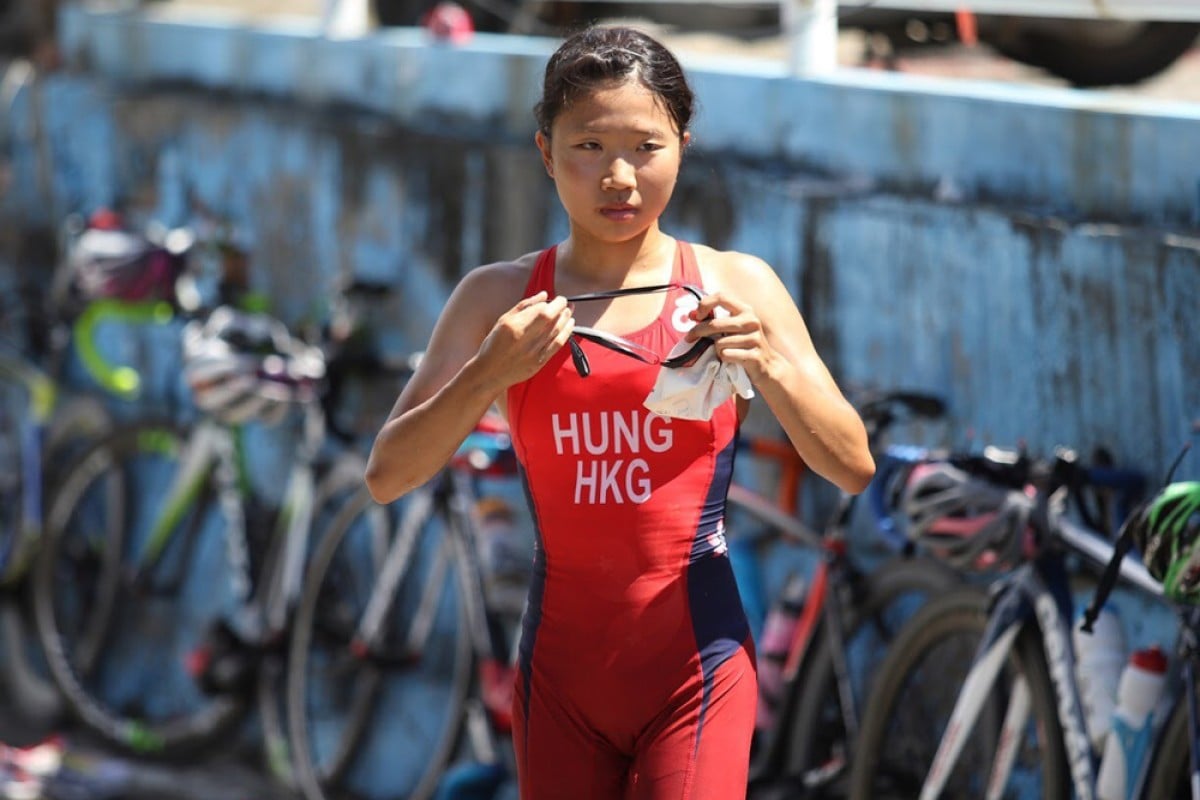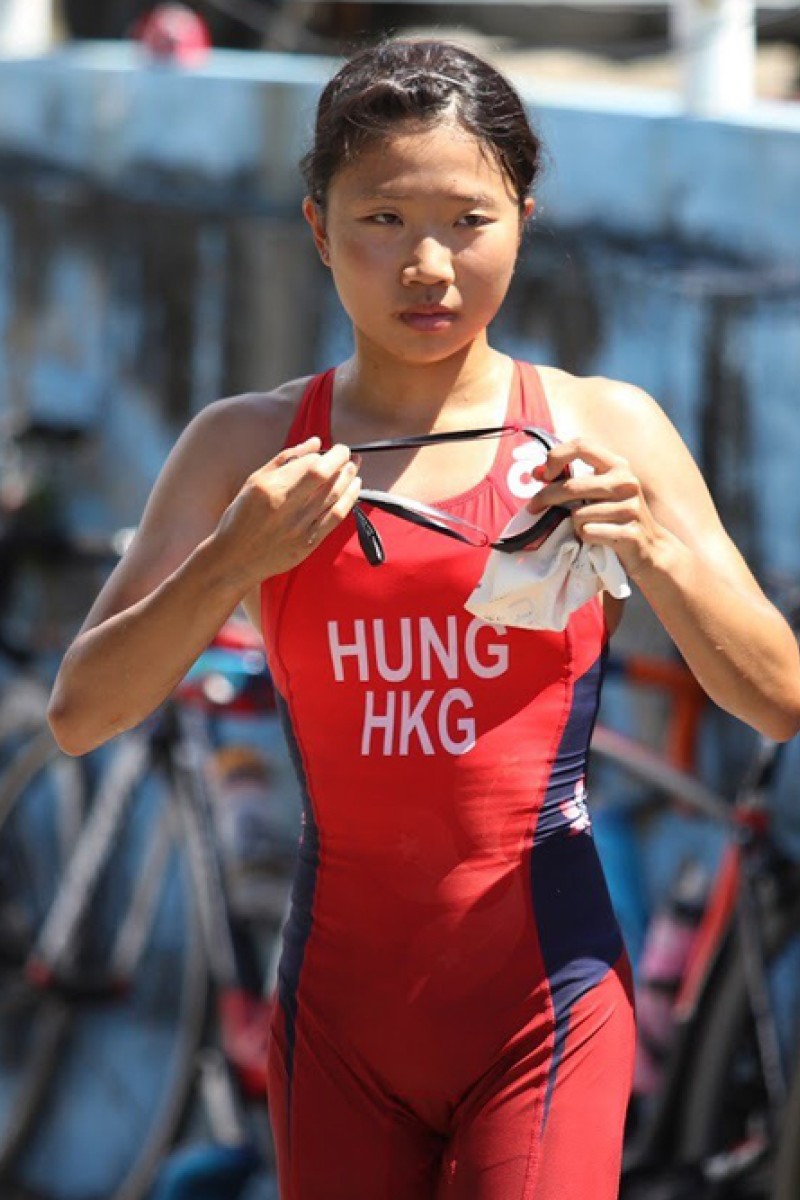 Chelsea Hung hopes to win gold in this weekend’s race.
Chelsea Hung hopes to win gold in this weekend’s race. Hong Kong’s star triathlete Chelsea Hung Cheuk-yi is battling her eating disorder one step, pedal and stroke at a time.
Hung was chosen to compete in the Youth Olympic Games in 2014. She called it one of the happiest moments of her life. Unfortunately, this would go on to trigger a serious case of anorexia.
“At the time of the Youth Olympics, I was still chubby with a little bit of baby fat,” said Hung, who just turned 19. “I didn’t perform very well and I saw the girls from countries like France and Australia were really tall and thin. So I thought that if I went on a diet and became really skinny I could be as fast as them.”
Her lack of food – combined with her highly intensive training – caused her weight to drop from 50kg to 39kg. Thankfully, she said she is “95 per cent recovered” now.
Hung said her body image issues stem from her childhood.
“I was chubbier when I was younger, so before I made the national team, I had several coaches who called me fat,” she explained. “One even said ‘You’re so fat, you’re not suited for triathlon – you can’t run fast enough’. Another would call me ‘fat girl’.”
Hung, now a second-year physiotherapy student at Hong Kong Polytechnic University, said the disorder had a serious effect on her athletic career.
“Most people assume that triathletes should be tanned from being outdoors all the time and look muscular and toned,” she said. “However, my skin was yellow, probably because the weight loss weakened my health. I was also too skinny and had sunken cheeks. I didn’t look like an athlete. Many people even questioned if I was one.”
Triathlon comprises running, cycling and swimming. Hung said swimming was her strongest discipline, but the eating disorder turned it into her biggest weakness.
Chinese International School triple-threat Mark Russell dominates Asian triathlon scene
“For swimming, having some body fat is important because of buoyancy. I was so thin that it was hard for me to stay afloat,” said Hung. She added the eating disorder made her significantly weaker, which caused her cycling performance to suffer, too.
Hung credits the Hong Kong Sports Institute (HKSI) for stepping in and helping her overcome the disorder.
“After my weight dropped to its lowest point, my coach stopped my training until my weight went up to a reasonable level,” she said. “I started visiting the [HKSI] nutrition department several times a week to measure my weight, and they would give me the recommend meals and portion sizes. This definitely helped a lot in my recovery.”
Hung also said her idol Flora Duffy – the 2016 and 2017 ITU World Triathlon Series World Champion from Bermuda – also inspired her to make a full recovery.
“Flora also used to suffer from an eating disorder,” Hung said. “She participated in the 2008 Beijing Olympics but couldn’t finish the race. However, she recovered and became the world champion. Her experience encouraged me and showed me you can succeed even though you may have a big obstacle in front of you.”
Now that she is healthy, Hung is focused on representing Hong Kong and promoting triathlon in the city. She believes that because cycling, swimming and running are all popular individual sports here, more people should be competing in triathlons.
“I think swimming in a pool or running around a track all day is very boring,” Hung said. “For triathlons, you spend time swimming in the ocean, or biking around mountains and seeing beautiful scenery. I definitely think it is more fun to be able to train for several sports at once.”
She thinks that being a triathlete has benefits that go beyond physical exercise, and advised more young people to take up the sport. “Triathlons have helped me to have better discipline, time-management skills and mental toughness,” she explained. “Doing triathlons will help you to be better at whatever you do, even if you are working in an office.”
She is hoping to win the gold medal in the “elite” category of the Hong Kong Life ASTC Sprint Triathlon Asian Cup this weekend in Sunny Bay.
